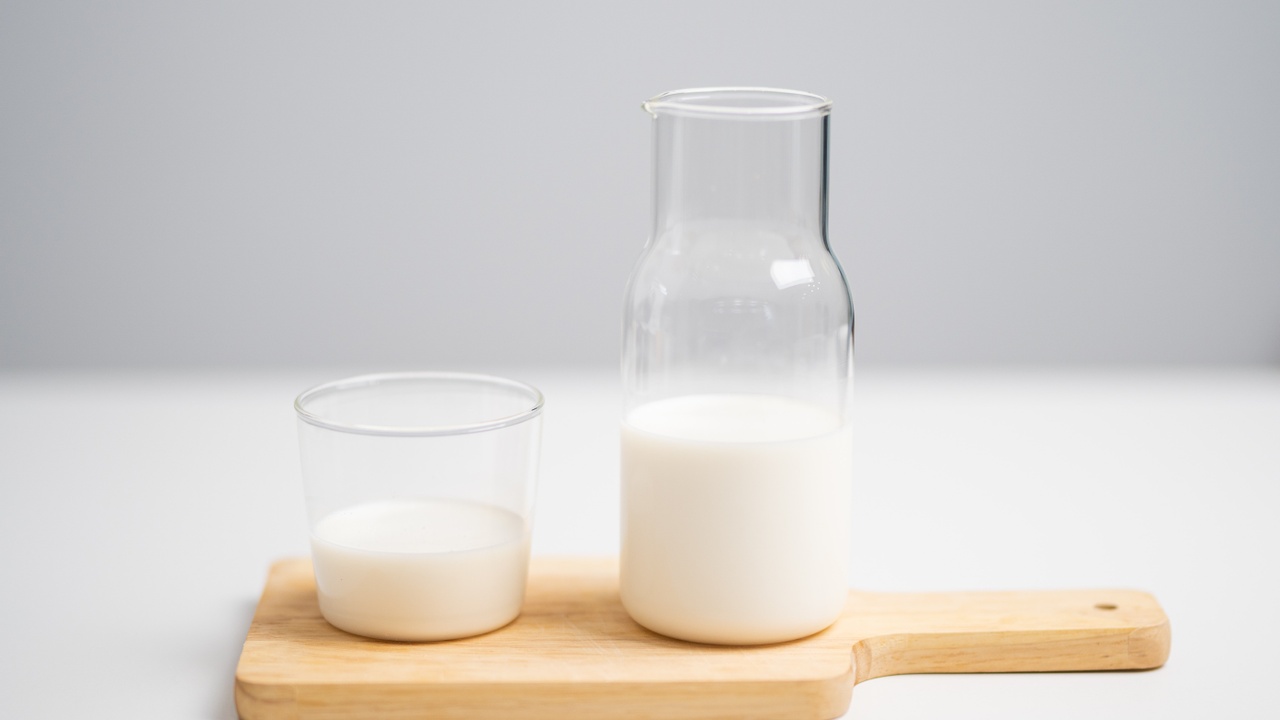Milk & Recovery
Jun 14, 2021
Is milk a good sports drink?
Yes, milk the ideal recovery option we need look no further than the humble glass of milk. Milk is easy to digest and has a nutritional composition that makes it an ideal recovery drink. It is a rich source of high-quality protein contains all the essential amino acids and is particularly rich in Leucine.
Recovery is a vital and often an overlooked aspect of training.
Recovery not only allows us to repair our bodies but also to recover physically and psychologically, so we are ready to give our all in the next training session. Recovery is super important, we simply can’t keep training as recovery is where adaptation happens; increasing strength, aerobic capacity and performance.
Inadequate recovery leads to a decrease in performance and an increased risk of illness and injury. So essentially all that hard work may be lost to poor recovery.
So where does nutrition have a role in our recovery?
We often think of the three Rs when it comes to performance nutrition- refuel, repair/recover and rehydrate.
Without optimising nutrition muscles can not adapt, grow and repair in response to training loads.
The goal of recovery nutrition is to optimise muscle protein synthesis (muscle growth), reduce muscle protein breakdown, and replenish our glycogen stores and replace any lost fluids and electrolytes.
Yes, we could just grab a protein recovery shake, one of those functional milk drinks on the supermarket aisles but when looking for the ideal recovery option we need look no further than the humble glass of milk!
A cold glass of milkshake is super easy to tolerate after a heavy training session and has a nutritional composition that makes it an ideal recovery drink.
So why is milk a good recovery drink?
It is a rich source of high-quality protein containing all the essential amino acids, or building blocks of protein being particularly rich in the amino acid Leucine.
Whys is Leucine so essential?
Leucine is required to optimise repair, maintenance and development of our muscles. In fact, it is the limiting factor when it comes to muscle protein synthesis or making muscle.
Research has shown that milk can further enhance recovery by reducing the symptoms of delayed onset of muscle soreness (DOMS) (1). Who doesn’t want to reduce that ?!
What else is good for you in milk?
Milk has many key nutrients such as calcium and electrolytes such as potassium and phosphate making it an excellent choice for rehydration, outperforming water and sports drinks (2).
What about milk’s effects on weight?
Interestingly drinking milk as part of recovery can also have favourable effects on body composition, increasing muscle mass and reducing in body fat (3,4). Now milk is starting to sound pretty damn good isn’t it?!
Does milk contain carbohydrates as well as protein?
Yes! For longer, more intense training sessions, flavoured milk is recommended due to its carbohydrate content. Flavoured milk such as chocolate or strawberry contains a ratio of carbohydrate to protein of between 3:1 and 4:1 which is considered optimal for post-exercise recovery and replenishing glycogen stores.
Research undertaken on cyclists found that chocolate milk provided better muscle recovery than other commercially available sports drinks. Cyclists that consumed chocolate milk recovered faster and performed better than those consuming a carbohydrate drink (5,6). Combining a glass of milk with a high carbohydrate snack such as a banana or slice of malt loaf will have the same effect. That is pretty simple and cost-effective as a post-training recovery tool.
When should you drink milk after training?
To optimise recovery aim to have a glass of milk within 2 hours of your training session.
We often talk about a “window” following exercise where we are more susceptible to nutrient uptake and therefore aids faster recovery. In fact, we now know that this window may be more like a big garage door but for simply trying to start the recovery process as soon as possible post-training would be a really good place to start.
This is particularly important when you are training more than once a day.
What if I don’t tolerate milk?
Some people don’t tolerate milk sugar lactose very well.
Not a problem! If you are lactose intolerant why not try lactose-free milk. If you are vegan or do not consume dairy products then soy milk is the best option. It is important to note that other nut and plant-based milk contain minimal amounts of protein and are not suitable for post-exercise recovery.
Simply put a pint of milk post-workout is a perfect recovery drink, helping you to recover faster and perform better in your next workout
REFERENCES
1.Cockburn, E., Hayes, P.R., French, D.N., Stevenson, E. and St Clair Gibson, A., 2008. Acute milk-based protein–CHO supplementation attenuates exercise-induced muscle damage. Applied physiology, nutrition, and metabolism, 33(4), pp.775-783.
2.Shirreffs S.M., Watson P., Maughan R.J. (2007). Milk as an effective post-exercise rehydration drink. British Journal of Nutrition. Vol.98:173-180.
3.James, L.J., Stevenson, E.J., Rumbold P.L.S., Hulston, C.J. (2019). Cow’s milk as a post-exercise recovery drink: implications for performance and health. European Journal of Sport Science. Vol. 19(1): 40-48
4.Josse, A.R., Tang, J.E., Tarnopolsky, M.A. and Phillips, S.M., 2010. Body composition and strength changes in women with milk and resistance exercise. Medicine & Science in Sports & Exercise, 42(6), pp.1122-1130.
5.Karp, J.R., Johnston, J.D., Tecklenburg, S., Mickleborough, T.D., Fly, A.D. and Stager, J.M., 2006. Chocolate milk as a post-exercise recovery aid. International journal of sport nutrition and exercise metabolism, 16(1), pp.78-91.
6.Upshaw A.U., Wong, T.S., Bandegan, A., Lemon, P.WR. (2015) Cycling Time Trial Performance After Glycogen-Lowering Exercise Is Similarily Enhanced By Recovery Nondairy Chocolate Beverages Versus Chocolate Milk. International Journal of Sport Nutrition and Exercise Metabolism. Vol. 26 (1): 65-70
